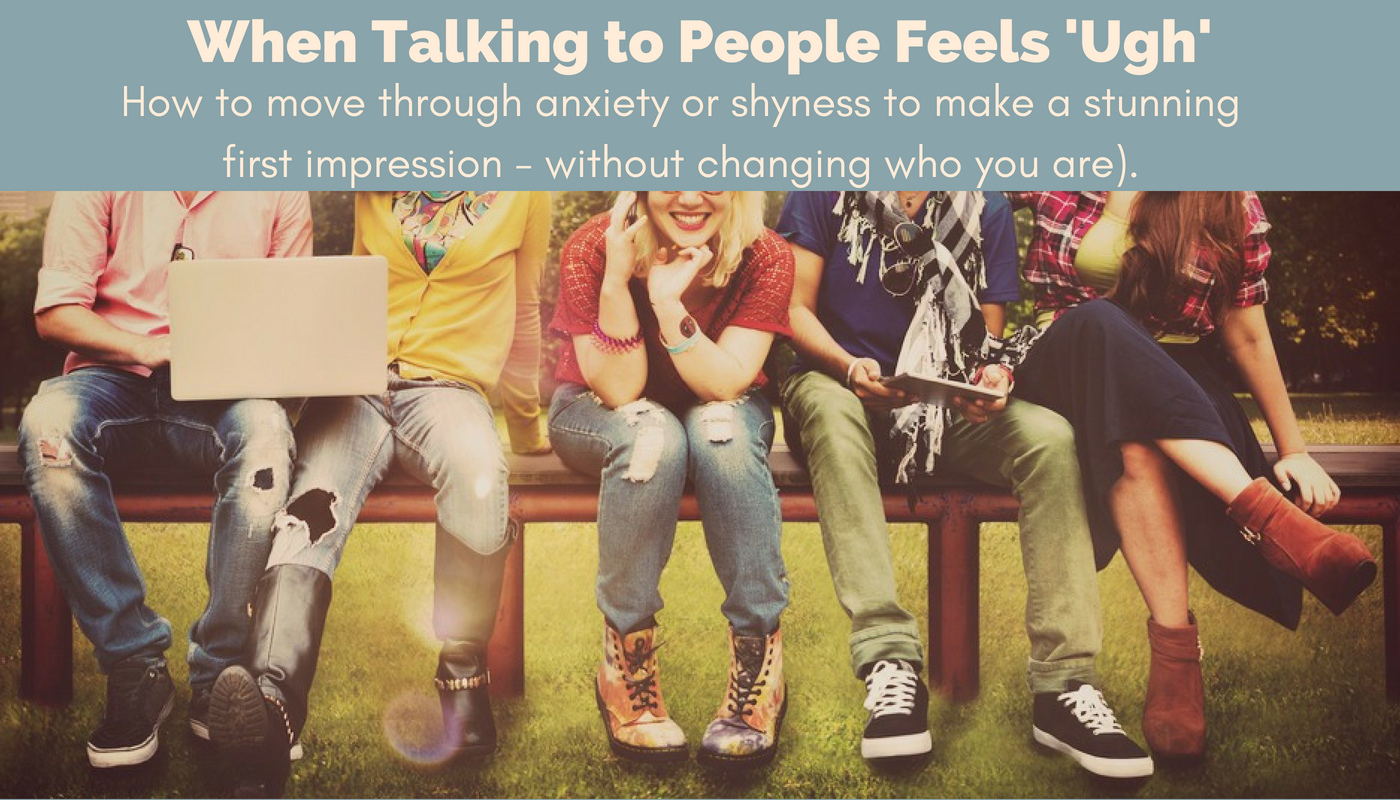How to move through anxiety to make a stunning first impression, without changing who you are (because who you are is amazing).
Transcript:
Shyness or introversion come with so many strengths. They definitely aren’t things that need to be changed, but they can make talking to people difficult. Something that can make this easier is to let them do the taking. To do this, show interest, ask questions, follow your curiosity on similarities or differences. Interesting people aren’t necessarily the ones with lots of stories to tell, or the ones who appear to be the life of the party. They’re the people who will show interest in other people, and who will give them the space to talk about themselves or what’s important to them. Often, shy or introverted people are really great at doing that. People won’t always remember the things you say, but they will always remember how they felt around you. If you are someone who asks questions and follows your curiosity about people, you will be someone who is really interesting to spend time with. A lot of that is about exploring the differences between you and other people. There’s so much to learn from other people – even if it’s how not to be, or how not to do things. So, even if you are someone who is shy or even if you are a little bit anxious about talking to people, don’t ever think that you aren’t somebody who isn’t really fascinating and wonderful to be with. In fact, if you asked the people around you who you spend time with, they would probably say that you are one of the best people to be with because you are sensitive to things and you let people be who they are. So whenever you can, show curiosity in people and ask questions. Everything you discover becomes an important part of your wisdom that will really open up the world for you.



Leave a Reply